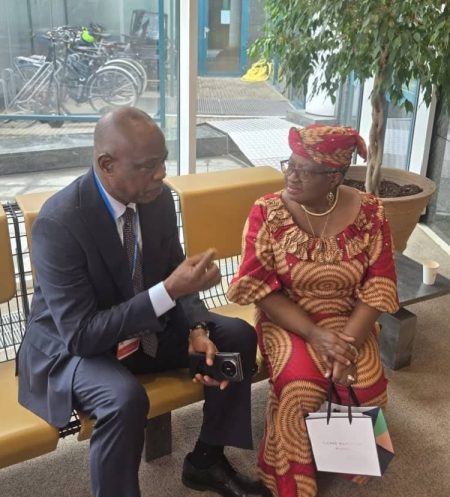18 February 2013, Sweetcrude, Lagos – Organised Labour in the Nigerian oil and gas industry has called on members of the National Assembly to ensure that the Petroleum Industry Bill, PIB, before it, comes out in a way it will be mutually beneficial to Nigeria and the International Oil Companies, IOCs, operating in Nigeria.
Under the aegis of the Nigeria Union of Petroleum and Natural Gas Workers, NUPENG, and Petroleum and Natural Gas Senior Staff Association of Nigeria, PENGASSAN, organised labour insisted that the PIB should ensure a win, win situation for all concerned including the host communities and the workers besides the government and IOCs.
President of PENGASSAN, Comrade Babatunde Ogun, who spoke on behalf of the two unions, said: “Presently, Nigeria depends on oil and gas to survive and unless the oil and gas industry survives, the survival of Nigeria is also in jeopardy, because the sector is the mainstay of our economy.
“As much as we want more income for the country, as workers and major stakeholders in the oil and gas industry as well as in the Nigerian nation, we believe that a just and equitable balance needs to be struck between increasing government take and the oil companies’ profitability so that they can continue to make more investments which invariably will also translate to more money for government.
“Oil is being discovered almost on a daily basis in other countries and there are prospects for more as many countries are intensifing their search for petroleum. Nigeria should not do anything that will price it out of the competitive global oil market by putting in place an unfriendly fiscal regime that will put off investors. The PIB should have a fiscal regime that will be favourable to both existing oil companies and potential investors that may want to come into the country.”
He argued that PIB should target increased production of oil and gas resources in the country, while also focusing on replenishing and increasing reserves and improving on health, safety and environmental performances in the industry.
According to Ogun PIB should ensure that “IOCs contribute to the overall social and economic development of the country, and make government to also leverage on oil and gas resources to expand and diversify the economy, maximise the creation of economic value and employment opportunities in the sector”.
To achieve these objectives, the unions recommended that the PIB should clearly spell out the administration processes of relinquishment of unutilized portions of OMLs from IOCs as proposed in the PIB to marginal fields to be operated mostly by local oil and gas companies based on the principle of “right of first refusal.”
Other recommendations of both NUPENG and PENGASSAN contained in their position paper on PIB include: That bureaucratic bottlenecks inherent in the current contracting process should be reviewed with a view to reducing the lead time of an average contract to a maximum of 6 months (for example, under the current arrangement it takes an average of 18-24 months to complete contracting processes with NNPC/NAPIMS).
That royalties should be clearly spelt out in the PIB, based on parameters of price and production, as it is too fundamental to be left to regulation or ministerial discretion.




